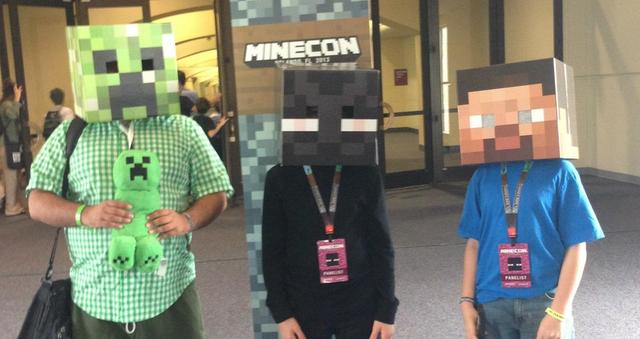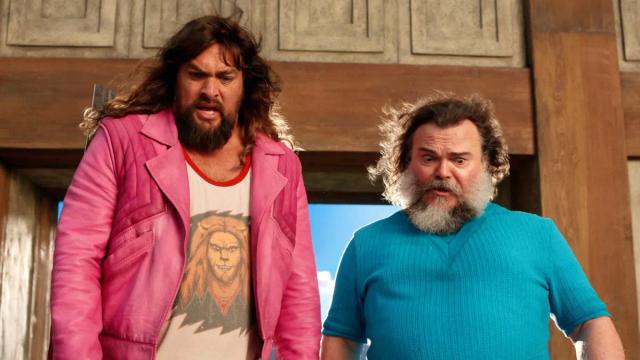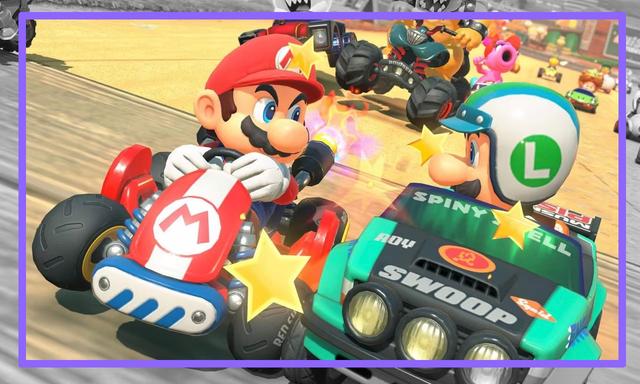If you click on a link and make a purchase we may receive a small commission. Read our editorial policy.
The Acolyte was the anarchistic Star Wars story fans of the Jedi never wanted
In the galaxy as shown in the latest Star Wars series on Disney+, there's no such thing as right or wrong, but simply different oppressors at war with each other

Popverse's top stories of the day
- Marvel's Kevin Feige talked to John Boyega about who he'd play in the MCU, but "there ain't no room for me," says the Star Wars star
- MEMBERS ONLY: Watch the Lord of the Rings movie reunion panel with Elijah Wood, Sean Astin, Dominic Monaghan, Billy Boyd, John Rhys-Davies, and Andy Serkis from Chicago's C2E2 2025
- Sorry, webheads: Tom Hardy says we weren't as close to that Spidey/Venom movie as was reported
For many, Andor and The Last Jedi stand out as the premiere Star Wars projects of the past decade or so — stories that seek to add depth to what was a successful kids’ property filled with subtextual political commentary from decades earlier. To an extent, both contradict the worldbuilding (galaxy-building, perhaps, is a better term, considering) and worldview of those first, iconic Star Wars movies: the Rebels (or Resistance) are shown to be pragmatic and strategic instead of being merely heroic, and the bad guys revealed to be more flawed, more boring than Darth Vader could have ever dreamed of. It’s in this context that The Acolyte was introduced — a series that at once embraces and deconstructs Star Wars more than either The Last Jedi or Andor, and as a result, arguably stands apart from both… and maybe above them, too.
What The Acolyte does that neither Andor nor The Last Jedi went as far as do is dare to suggest that the inherent assumed morality of Star Wars is flawed, while simultaneously hewing identifying a more nuanced belief system that the franchise operates under. For all that the evil in Andor, especially, and the Last Jedi is banal, it’s nevertheless evil: prisoners are treated as slaves, murder is commonplace, and so on, even if it is all controlled by middle managers seeking to get ahead in their local power structure like characters in an average workplace sitcom. Similarly, even the moral compromises made by the “good guys” is in service of.. well, an actual tangible “greater good.” The Acolyte’s central conceit inherently picks at this thread, quietly but insistently, repeatedly asking one simple question: why, exactly, is the Dark Side of the Force meant to be a bad thing?
Looked at in one way, The Acolyte is a very straightforward story about the origin of the Sith as they appear in the prequel trilogy and the original trilogy. While we don’t know for sure that the shadowy figure glimpsed in the final episode is, as many assume, Darth Plagueis — the Emperor’s Sith Master — it’s nonetheless a series focusing on characters giving in to the Dark Side, and how they got there. But, here’s the thing: it’s also a show that purposefully shies away from a simplistic morality about those who use the Dark Side.
It feels reasonable to suggest that neither Osha nor Mae are evil, really; Mae, especially, doesn’t just turn away from revenge upon discovering her sister is alive — she specifically says that she wants Sol to explain his sins to the Jedi Council and face justice, rather that simply being killed. Osha, too, is more complicated than “simply” being evil, despite being the one to kill Sol: she is, instead, acting emotionally and rashly upon discovering that (s) she’d been lied to about the death of her mothers for more than a decade, and (b) the person she’d been closest to during that time was not only the one lying to her, but also the one who’d actually killed her parents. Sure, she committed murder, but it was for understandable reasons, to a degree.
Meanwhile, the Jedi come out of the show as anything but the moral arbiters of the galaxy: even beyond the fact that they’re seen as an oppressive police force by citizens of the Republic, we get to see them in engage in two separate cover-ups over what actually happened on Brendok — that of Indara’s original landing party, and then Vernastra’s subsequent cover-up blaming Sol for all the murders and further obscuring the true threat she knows is out there. All the while, they’re resisting outside oversight, at the same time as proving how necessary such oversight would be.
In other words, they’re the all-powerful authority that resists questioning; the force that resists control while imposing it on everyone else. They’re the empire, if not The Empire.
Even as it connects to, and builds out the mythology of Star Wars, The Acolyte messes up and rejects the moral absolutes that the property is built on: there is no good or evil, ultimately. There’s only oppression and the rejection of that oppression. The “good guys” slaughter those who threaten their view of the way the Force works, and the “bad guys” seek revenge for emotional closure and to justify their survival. It’s a muddying of the waters that might not entirely infect the rest of the franchise — there’s still time for a second season to show Yoda rejecting all of the cover-ups and demanding a moral standard, while the Stranger and Osha start outright slaughtering innocents for fun, after all — but certainly complicates it.
The Acolyte, ultimately, is an anarchistic addition to the Star Wars canon, at least as it finishes its first season — something that rejects the status quo even more than anything that has come before, and asks its audience to truly consider where their loyalties lie. It’s a nod to where Star Wars could go moving forward, even if it’s unlikely to as a whole… there are, after all, merchandise sales to consider. For now, let’s be happy with what we have, and hope for a second season that stays true to what it’s already established.
Get to know, understand, and love the Star Wars franchise more with our Star Wars watch order, guide to all the upcoming Star Wars movies & TV shows, and all the Star Wars movies and Star Wars TV shows ranked.
Follow Popverse for upcoming event coverage and news
Find out how we conduct our review by reading our review policy
Let Popverse be your tour guide through the wilderness of pop culture
Sign in and let us help you find your new favorite thing.
















Comments
Want to join the discussion? Please activate your account first.
Visit Reedpop ID if you need to resend the confirmation email.